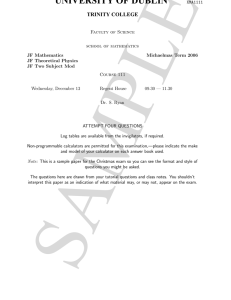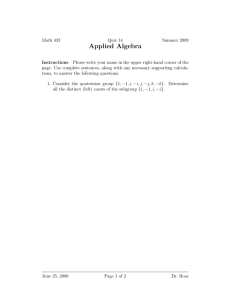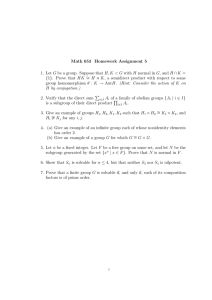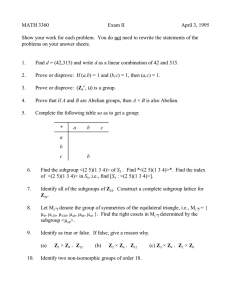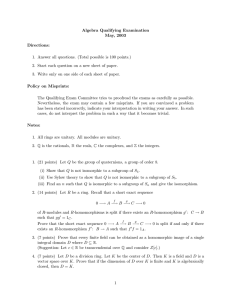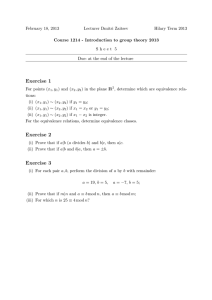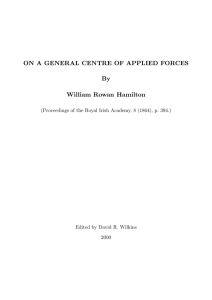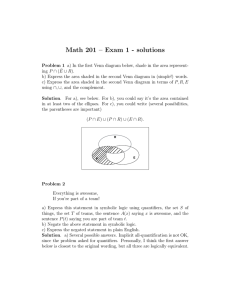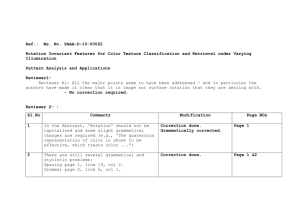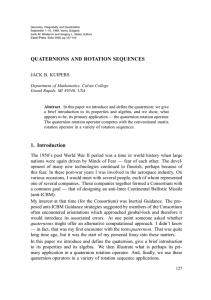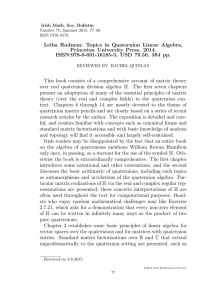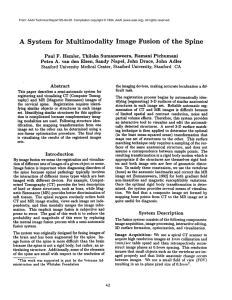UNIVERSITY OF DUBLIN TRINITY COLLEGE
advertisement
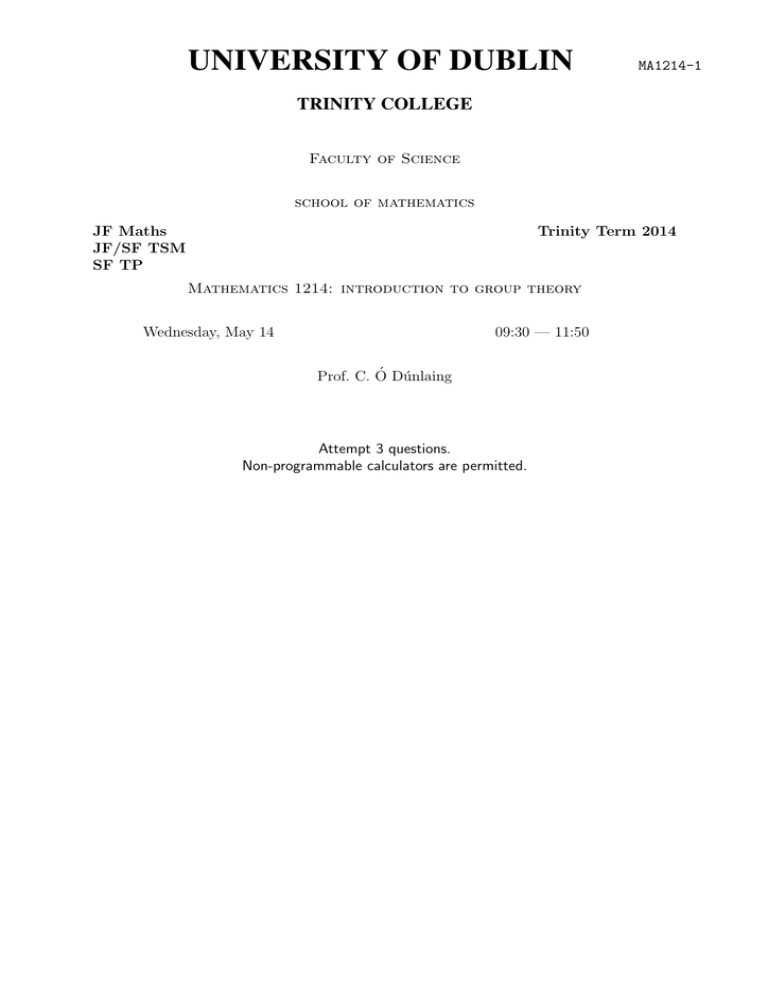
UNIVERSITY OF DUBLIN
MA1214-1
TRINITY COLLEGE
Faculty of Science
school of mathematics
JF Maths
JF/SF TSM
SF TP
Trinity Term 2014
Mathematics 1214: introduction to group theory
Wednesday, May 14
09:30 — 11:50
Prof. C. Ó Dúnlaing
Attempt 3 questions.
Non-programmable calculators are permitted.
Page 2 of 3
MA1214-1
1. (a) Prove that every subgroup of Z (additive) is of the form hni where n ∈ N.
(b) Calculate gcd(1020, 425), expressing the result in the form 1020r + 425s.
(c) Compute the multiplication table for Z∗10 .
(d) Calculate φ(35). Given 1 ≤ x ≤ 34 and x5 ≡ 11 (mod 35), what is x?
2. (a) Define ‘equivalence relation’ and ‘partition.’
(b) Which of the following are equivalence relations? Where they are not, give reasons.
i. x ≤ y on R
ii. (x1 , y1 ) and (x2 , y2 ) in R × R are equivalent if x21 + y12 = x22 + y22 .
iii. x 6= y on R.
(c) Let R be an equivalence relation on A. Prove that the equivalence classes [x]R
are a partition of A.
(d) Consider the following partitions of S3 .
i. {1, (123)}, {(12), (13)}, {(23), (132)}
ii. {1, (23)}, {(13), (132)}, {(12), (123)}
One of them arises from a relation of the form ‘y −1 x ∈ H,’ where H is a subgroup
of S3 . Which one? For that one, is H a normal subgroup of S3 ?
3. (a) Define left action of a group G on a set S, orbit of an element x of S, and fixing
subgroup Fx .
(b) Suppose G is a finite group acting on a finite set S on the left. Show that for any
x, |Ox | = |G|/|Fx |.
(c) Let H ≤ G where G is a finite group and |G| = 2|H|. Prove that H ⊳ G.
(d) Use this, and Sylow’s Theorem, to show that there are exactly two non-isomorphic
groups of order 6.
4. (a) Describe (without proof) how a (unit) quaternion can be used to define a rotation
map on R3 .
(b) Show how a unit quaternion can be represented as a 2 × 2 unitary matrix U .
Page 3 of 3
MA1214-1
(c) Give the quaternion q and the unitary matrix U encoding R, where R is 60◦ rotation
around the axis through (1, −1, 1).
(d) Use the quaternion q, or the matrix U , to calculate R(0, 1, −1).
c UNIVERSITY OF DUBLIN 2014
